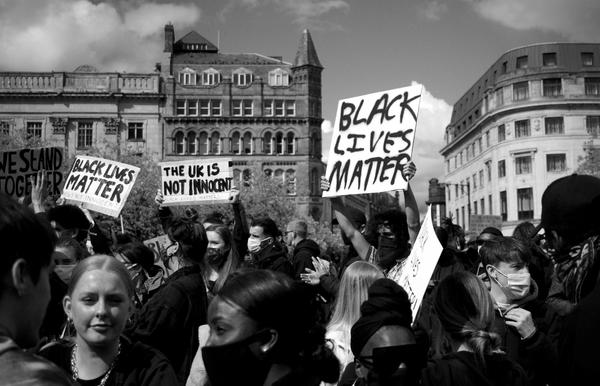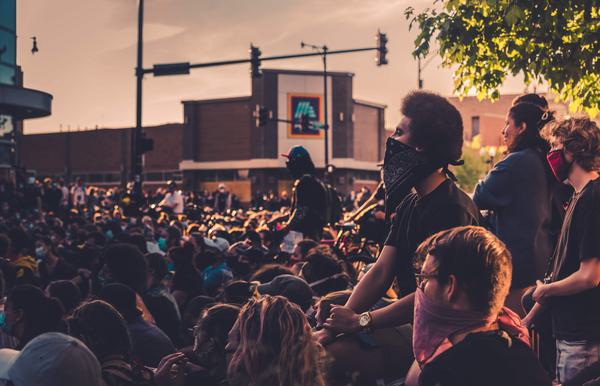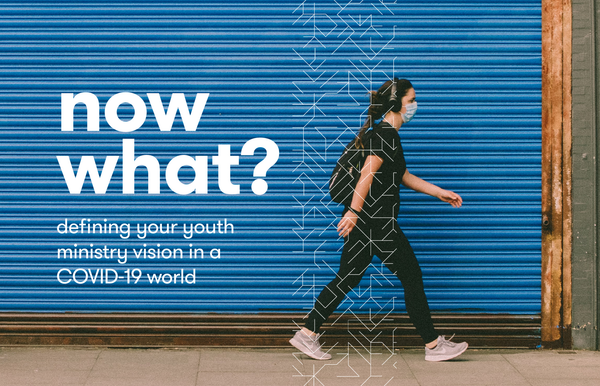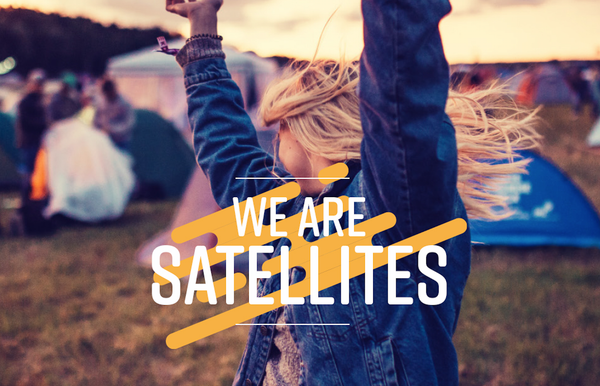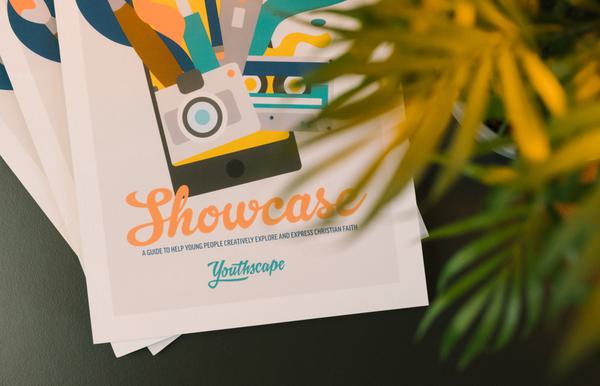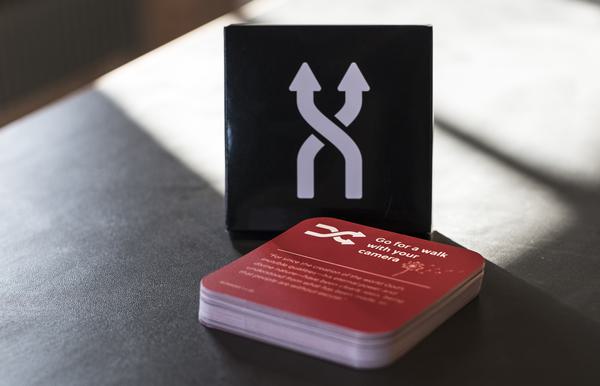What is anti-racism and how can youth leaders open up this conversation in their work with young people? Natalie Evans, co-founder of the social media platform @everydayracism_, draws on her experience.
This post is written for white-led churches and white youth leaders specifically, however, all are welcome to read.
Last year an incident took place in which two racists were verbally abusing a Black train conductor. The train was full and I, a Black mixed-race woman, was the only person who stood up and said something. In this moment I recorded the whole incident. In April 2020 the horrendous murder of Ahmaud Arbrey had been shared online and so many of my close friends and family were saying, “you can’t believe what goes on in America can you?” or “I can’t believe this still happens”. I was shocked to think that my friends and family really thought this. Did they not realise that racism is something I and many other BIPOC (Black, Indigenous and People of Colour) face on a day-to-day basis?
I felt God tell me to share the train incident on my social media; this was something I had previously felt reluctant to do. After posting the video it went viral with over a million views across different platforms. However, again the responses from the video were people either applauding me for saying something or saying "wow, I can’t believe this is still happening” or “I thought this only happened in America”. This continued to play on my mind a lot, and after speaking to my sister, we decided to set up an Instagram account called @everydayracism_ which would primarily be a space to tell the stories of BIPOC. A few weeks later, the tragic murder of George Floyd took place. We saw an increase on our platform predominantly from white people who wanted to know more about how to be anti-racist and how to be an ally. The platform is growing fast, with more and more people who want to “Listen, Learn and Do the Work."
How can I start to become ‘anti-racist'?
“It’s not enough to say you aren’t racist, you have to be anti-racist.”
– Angela Davis
I am sure many of us have heard this quote recently, and it's very true, but what does this actually mean, and where do you start? Being anti-racist means that you have to unlearn and relearn what you already think you know about racism, because a lot of what you have already learnt will have been rooted in systemic racism. If you are white or white passing, you need to educate yourself on white privilege and understand that your white privilege is what helps to uphold white supremacy and structural systems. These systems were built by and for the benefit of white people and is apparent more than ever that BIPOC are still held back by this system. Once you have understood this, then it’s time to do some work!
What does it mean to be an anti-racist youth worker?
Youth work will look very different for many youth workers, it’s very important that no matter what your youth group looks like, you must educate yourself when it comes to anti-racism. Inclusivity or diversity training IS NOT anti-racism work, you cannot learn how to be anti-racist in a day. Nor can you expect to learn this from BIPOC, as it’s not our job to educate you (unless we have chosen to do this and this will generally mean making payment). You must take responsibility to educate yourself and this is a lifelong commitment.
Along the way you will need to ask yourself some difficult questions – if you have an all-white youth group, why is this? Have you created a youth ministry that only allows for white kids to participate in? Have you researched the area you live in? Do you have many BIPOC young people in your area? If so, why are they not a part of your ministry? If you have BIPOC in youth group – how have you made them feel comfortable in your ministry? Do you have a diverse leadership team that young people can look up too and see themselves in? If you do have different ethnicities in your group, have you ever learnt about their culture? Have you ever tried to learn or support them in their experiences especially if they are minority in a white-led church?
What can I do as a youth leader to open up this conversation with my youth group?
Young people are aware of the conversations happening about racism, some will engage more than others, and many will struggle to know what to do. Resources are minimal for young people at the moment but there are still things you can do as a youth leader to help.
1. Open the conversation, ask your young people what they feel about what’s going on. How do they feel about the BLM movement and ask them what they think Jesus would think of it? Read stories of Jesus and how he fought for injustice, how does this relate to what’s happening now?
2. Do some anti-racism reading together. Layla F. Saad, who wrote Me and White Supremacy, is re-writing this book for teenagers – why not plan to study it together?
3. Encourage young people to follow anti-racist platforms on social media, and why not watch some programmes or films together? Channel 4 did a documentary – ‘The School That Tried to End Racism’. Watch and discuss.
4. Encourage young people to join in on signing petitions, peaceful protest and how they can creatively raise awareness on social media, or how they can raise money as a youth group for anti-racism charities.

Please, do not:
- Never ask of BIPOC in your youth group to teach others about anti-racism or share personal stories on racism especially when they have never spoken on this before. Remember Black and Brown people are not a monolith, and this can be seen as very tokenistic. You wouldn’t get a random young person to speak out on sexism just because they identifiy as a girl.
- If you have permission to ask someone about their personal experiences of racism or they come to you, it’simportant to bear in mind that retelling these stories can be very traumatic. Having to explain to others your experience of racism and why it is racist undoubtedly has an impact on your mental well-being and leads to further trauma; this conversation should be dealt with sensitively. Learn what gaslighting means and be sure you don’t do this when someone is sharing their experiences of racism.
- Do not hold these conversations when you have not started or done this work, it’s damaging (especially if you are White). Pay for people who are already doing the work to come in and help you if you feel out of your depth, there are a plethora of educators who have dedicated their life to this work, use them. White people are not experts on racism as they will not have experienced it so be careful who you seek advice from. Equally don’t shut down conversations if they arise. Be honest. If you don’t know something say that you need to look into it further or that you are still learning yourself.
- Do not allow for debate about racism. It’s important to understand terms and question things but to debate the actual existence of racism is denial and racist in itself. If you have a young person in your youth group who has learnt racist ideology or is from a family who holds racist beliefs, you will need to speak to them in order that your space does not become unsafe for BIPOC.
This work is not easy; it’s long but it’s necessary. I wonder if more people had done this work before now, maybe I wouldn’t have been the only one to speak up on the train.
Resources to read:
We Need To Talk About Race – Ben Lindsay
This Book Is Anti-Racist – Tiffany Jewell
Me and White Supremacy – Layla F. Saad
Why I’m No Longer Talking to White People About Race – Reni Eddo-Lodge
Social media accounts to follow:
Something to watch
Criminologist & Urban Youth Specialist Craig Pinkney gives a talk in the opening session of our recent online conference Now What?, titled: 'The Impact of Racism on Young People'. He joins Natalie Evans, Martin Saunders and Rachel Gardner for some Q&A after, and you can watch the whole thing below. Bishop Mike Royal also delivered the seminar 'Youth Work and Black Lives Matter: How Do We Learn From This Cultural Moment?', you can find that and more via the Now What? catch-up page.





